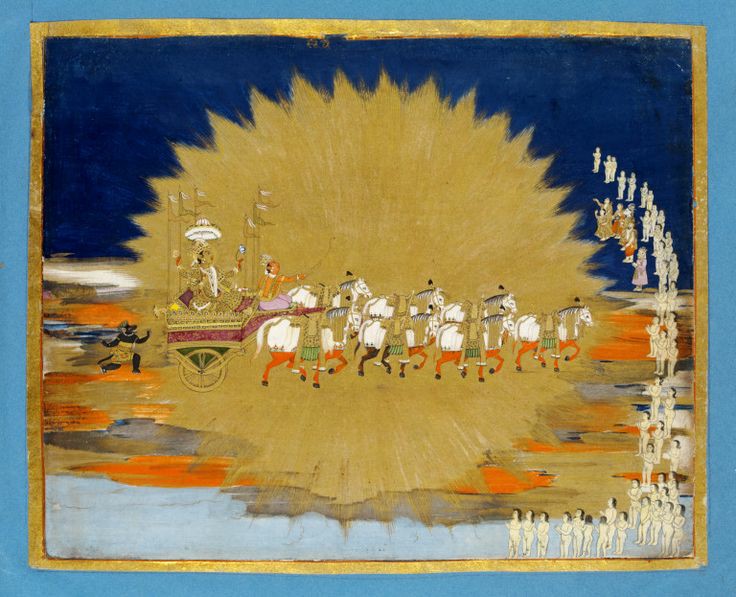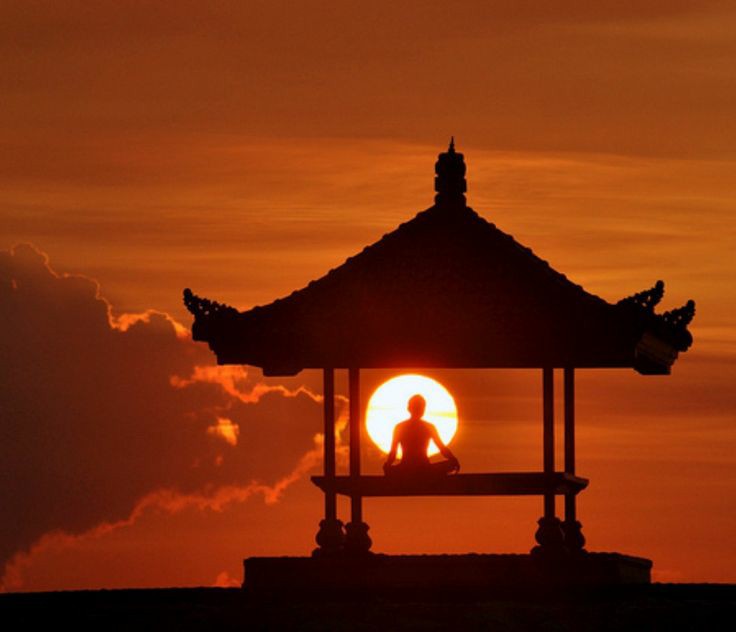
II Sri Adi Śaṅkarācārya - श्री आदि शङ्कराचार्य II
Sōpānaṁ : 7 Arrival of a King.
Staying in the gurukulam for 3 years, Śaṅkarā studied his own branch of the Vedas, along with its components like ‘siksha’ & ‘Kalpam’. In his 8th year, after completing studies, he returned
Sōpānaṁ : 7 Arrival of a King.
Staying in the gurukulam for 3 years, Śaṅkarā studied his own branch of the Vedas, along with its components like ‘siksha’ & ‘Kalpam’. In his 8th year, after completing studies, he returned
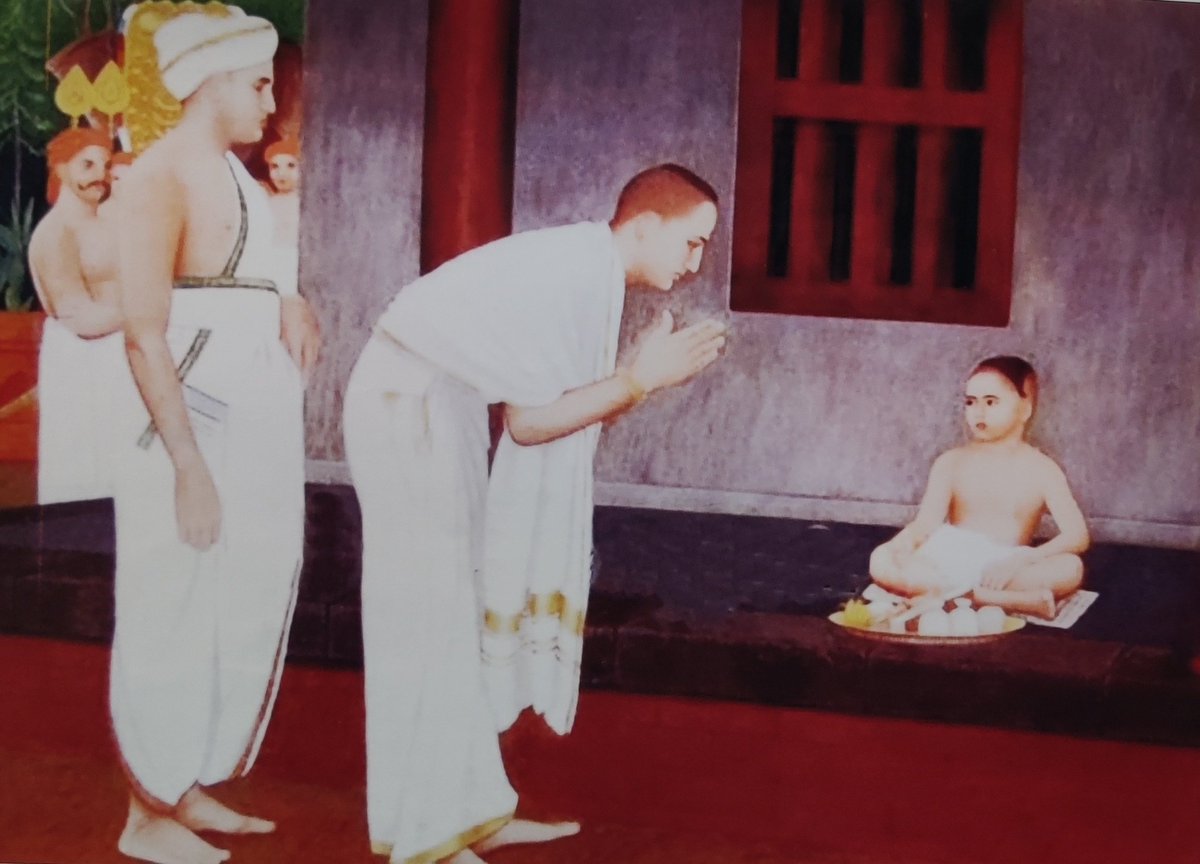
home & spent time in ’svadhyaya’ (self-study), meditation and serving his mother. Meanwhile, his reputation as a phenomenal prodigy began to spreader & wide even among scholars and it also reached the ears of the king, Rajasekhata. The king who was highly refined and scholarly
person, decided to meet Sri Śaṅkarā.
In keeping with the Kshatriya dharma, Rajasekhara went with several offerings and prostrated before Śaṅkarā. They discussed the ‘sastras’. The king was astounded at the intellectual & spiritual acumen of the Child-Yogi.
In keeping with the Kshatriya dharma, Rajasekhara went with several offerings and prostrated before Śaṅkarā. They discussed the ‘sastras’. The king was astounded at the intellectual & spiritual acumen of the Child-Yogi.
Mother and Son :
Now a widow, Aryamadevi led a pious & austere life. Early in the morning, she would walk to the distant river for a bath. Then chanting the Lord’s name the aged mother would visit the Vishnu temple. One day, while she was returning after her bath, with a longing
Now a widow, Aryamadevi led a pious & austere life. Early in the morning, she would walk to the distant river for a bath. Then chanting the Lord’s name the aged mother would visit the Vishnu temple. One day, while she was returning after her bath, with a longing
in the heart have ‘darsan’ of Lord Siva who had blessed her with a son, she spotted a white deer at a distance. By an inner prompting when she went near, it disappeared instantly. In its place, she saw a ‘Sivalinga’ & understood that the Lord had taken that form there in order to
bless her. She prostrated to the Lord.
The place where the lingam appeared in ‘Kaladi’ is even now known as ’TiruveIIaimantuIIi’ (the place where the divine white deer leapt into view).
The place where the lingam appeared in ‘Kaladi’ is even now known as ’TiruveIIaimantuIIi’ (the place where the divine white deer leapt into view).
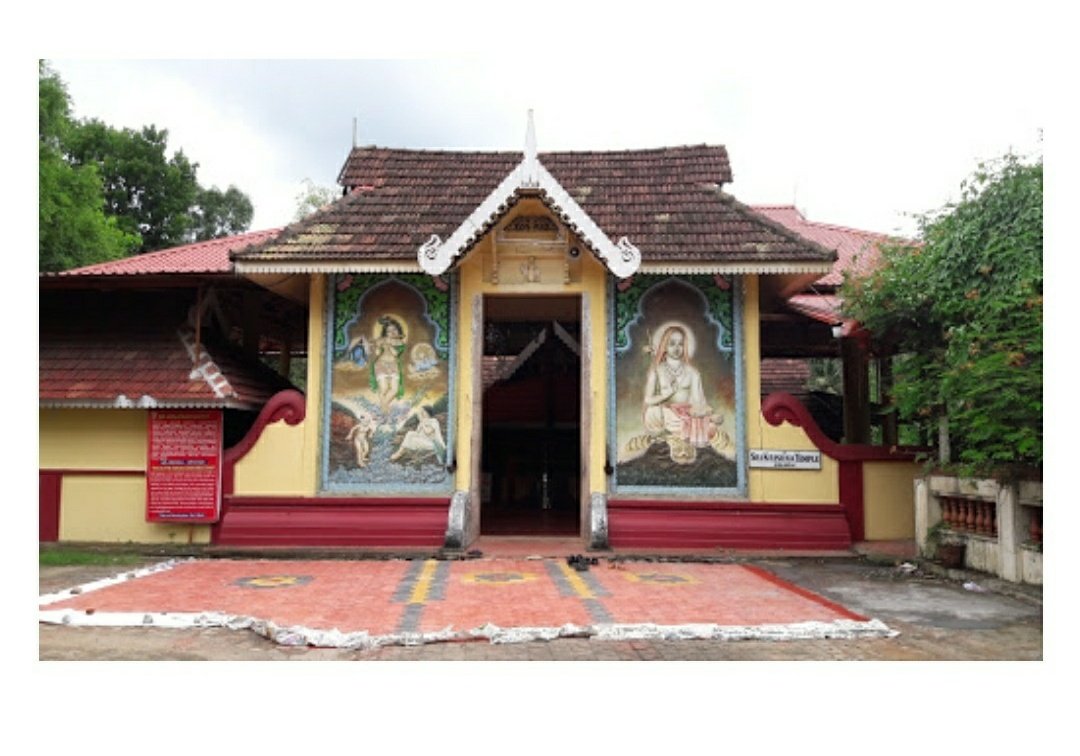
Visiting this temple also became part of Aryamba’s daily routine. Walking a great distance every day & observing fasts and austerities weakened her body considerably. One ‘dwadasi’ day, while returning from her bath in the ‘Purna’, she swooned and fell down due to hunger & 
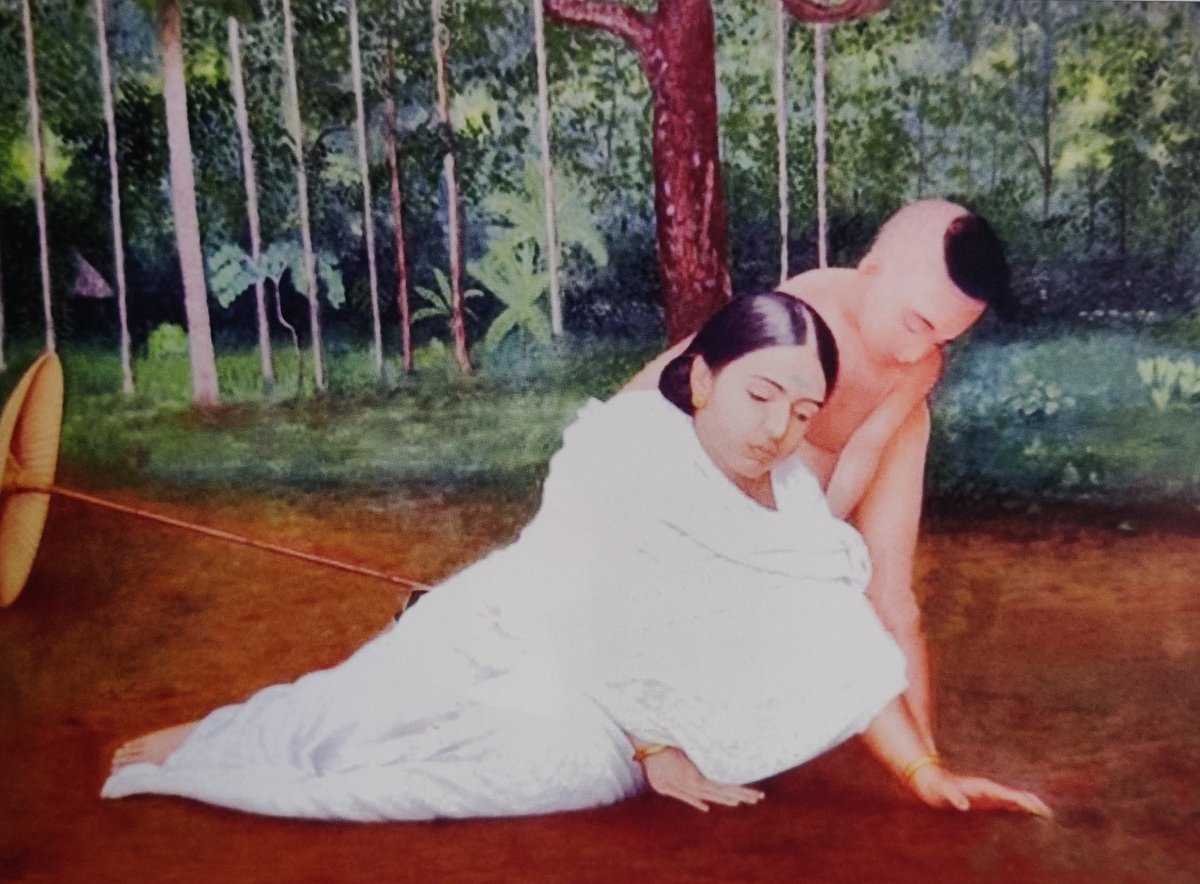
fatigue. Realising that mother had not returned hime, Śaṅkarā came looking for her & took her home. Overwhelmed by great compassion, he told her that from then onwards she need not walk such a great distance,& that ‘Purna’ would flow by the side of their house to enable her to 

have a dip.The mother listened to her son’s words with much love, amusement and an affectionate smile. It was only that night that she understood the real implication of his words.The mother looked at Śaṅkarā with great astonishment. Gazing at him with devotion, affection &
wonder she pondered, “ O! Dear Son, just by sheer will, you have changed the course of a river. Who are you, Siva or Vishnu? Such a miracle has never been heard before!”. But the discreet mother did not disclose the matter to anyone. Sri Śaṅkarā also behaved as though nothing
unusual had taken place.
Vishnu Sarma : Can one attain liberation simply by renouncing everything ? Will the fruit taste sweet if one plucks it before it is ripe ? At that moment a ripe mango fell down from a nearby tree.
Śaṅkarā : When ripe, it falls by itself.
Hey Vishnu!

Vishnu Sarma : Can one attain liberation simply by renouncing everything ? Will the fruit taste sweet if one plucks it before it is ripe ? At that moment a ripe mango fell down from a nearby tree.
Śaṅkarā : When ripe, it falls by itself.
Hey Vishnu!
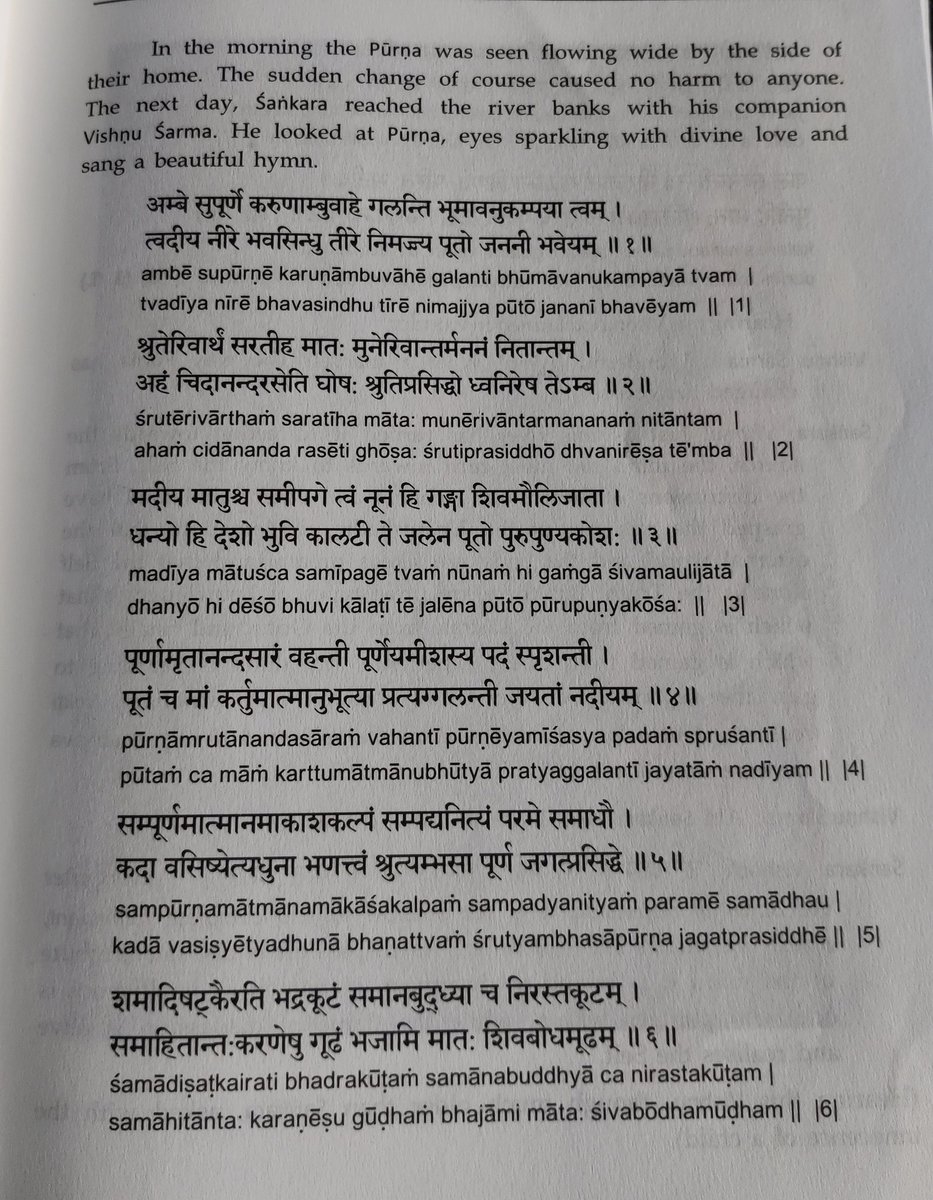
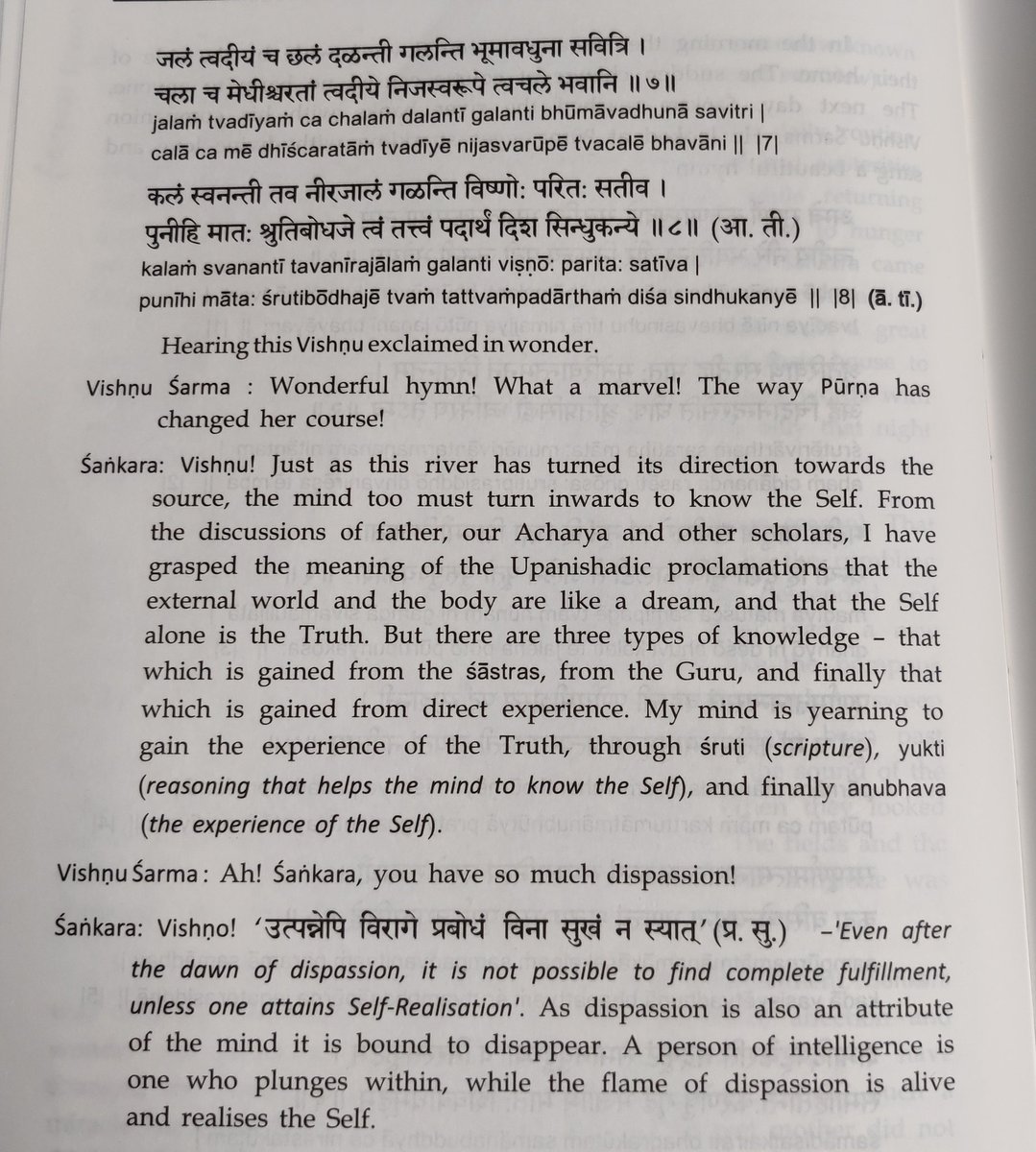
Just as a ripe fruit falls on its own from the tree, the bondage of ‘samsara’ leaves a person who has ‘virakti’ (dispassion)’. Vishnu! Renunciation is not for cowards.
‘Dhanyastu sanyasyati’ - ‘he indeed is blessed who out of dispassion renounces’ - says Bhartruhari.
Dispassion
‘Dhanyastu sanyasyati’ - ‘he indeed is blessed who out of dispassion renounces’ - says Bhartruhari.
Dispassion
for ‘samsara’ happens by the Lord’s grace & getting a ‘Sadguru’ is the result of infinite ‘Punya’. ‘Vairagya’ precedes ‘Jnana’ as the dawn, the sunrise.
They then stepped into d sacred river for ‘Sandhyavandanam’.
Thus ends the seventh Sōpānaṁ.
I ओम् तत् सत् I
I Om Tat Sat I
They then stepped into d sacred river for ‘Sandhyavandanam’.
Thus ends the seventh Sōpānaṁ.
I ओम् तत् सत् I
I Om Tat Sat I
@RituRathaur @jananisampath @ikkmurugan @Mishti_in @shallakaul @youngndharmic @BeenaPP1 @first_desi @ThtKashmiriGuy @KashmiriPandit7
@jyotikarma7
@aneelgs @slickindo @vparamaguru1 @armykafan @jyoitas
@tiwarinivedita
@anku_5789
@vyasonmukh @JyotiKarma7
@jyotikarma7
@aneelgs @slickindo @vparamaguru1 @armykafan @jyoitas
@tiwarinivedita
@anku_5789
@vyasonmukh @JyotiKarma7
@Manushi64428902
@mahesh8524 @ignisfatuus1110
@LostTemple7 @desi_thug1 @InfoVedic @geetaraavi @MNageswarRaoIPS @Isha_Sattva @itishree
@kachnarr @ayushJ_1604 @kr_ratansinghs @dil_se_ree @drvikaspadha @naive_rookie @apparrnnaa @lokagatha @pokaabhii @mahakal_k_bhakt
@mahesh8524 @ignisfatuus1110
@LostTemple7 @desi_thug1 @InfoVedic @geetaraavi @MNageswarRaoIPS @Isha_Sattva @itishree
@kachnarr @ayushJ_1604 @kr_ratansinghs @dil_se_ree @drvikaspadha @naive_rookie @apparrnnaa @lokagatha @pokaabhii @mahakal_k_bhakt
@rajeaiyer @bhat200
@RamFcSoni
@chalotweetkaro
@adityar96542358 @rajeshpushkarji @besurataansane
@BangadVedant @Manasi71 @IndiaTales7 @BharadwajSpeaks
@BharathiKumar4 @Murthy_sowjanya @jaythirdattempt @i_ragvendra @tvitterministry @moolyacoin @krishna76435679 @katti_mohan
@RamFcSoni
@chalotweetkaro
@adityar96542358 @rajeshpushkarji @besurataansane
@BangadVedant @Manasi71 @IndiaTales7 @BharadwajSpeaks
@BharathiKumar4 @Murthy_sowjanya @jaythirdattempt @i_ragvendra @tvitterministry @moolyacoin @krishna76435679 @katti_mohan
@bharatiyaseeker @world_neptuner
@saugatachaterje
@DeepaShree_AB
@Kaalateetham @priya_27_
@apparrnnaa @DivineElement @vedic_alok
@ajaypshetty
@oneternalvigil
@goldenthrust
@priyamvada22s @paperrose3k @_myselfjolly @ushanirmala @rudraashiv @pranitasubhash @bangadvedant
@saugatachaterje
@DeepaShree_AB
@Kaalateetham @priya_27_
@apparrnnaa @DivineElement @vedic_alok
@ajaypshetty
@oneternalvigil
@goldenthrust
@priyamvada22s @paperrose3k @_myselfjolly @ushanirmala @rudraashiv @pranitasubhash @bangadvedant
• • •
Missing some Tweet in this thread? You can try to
force a refresh











